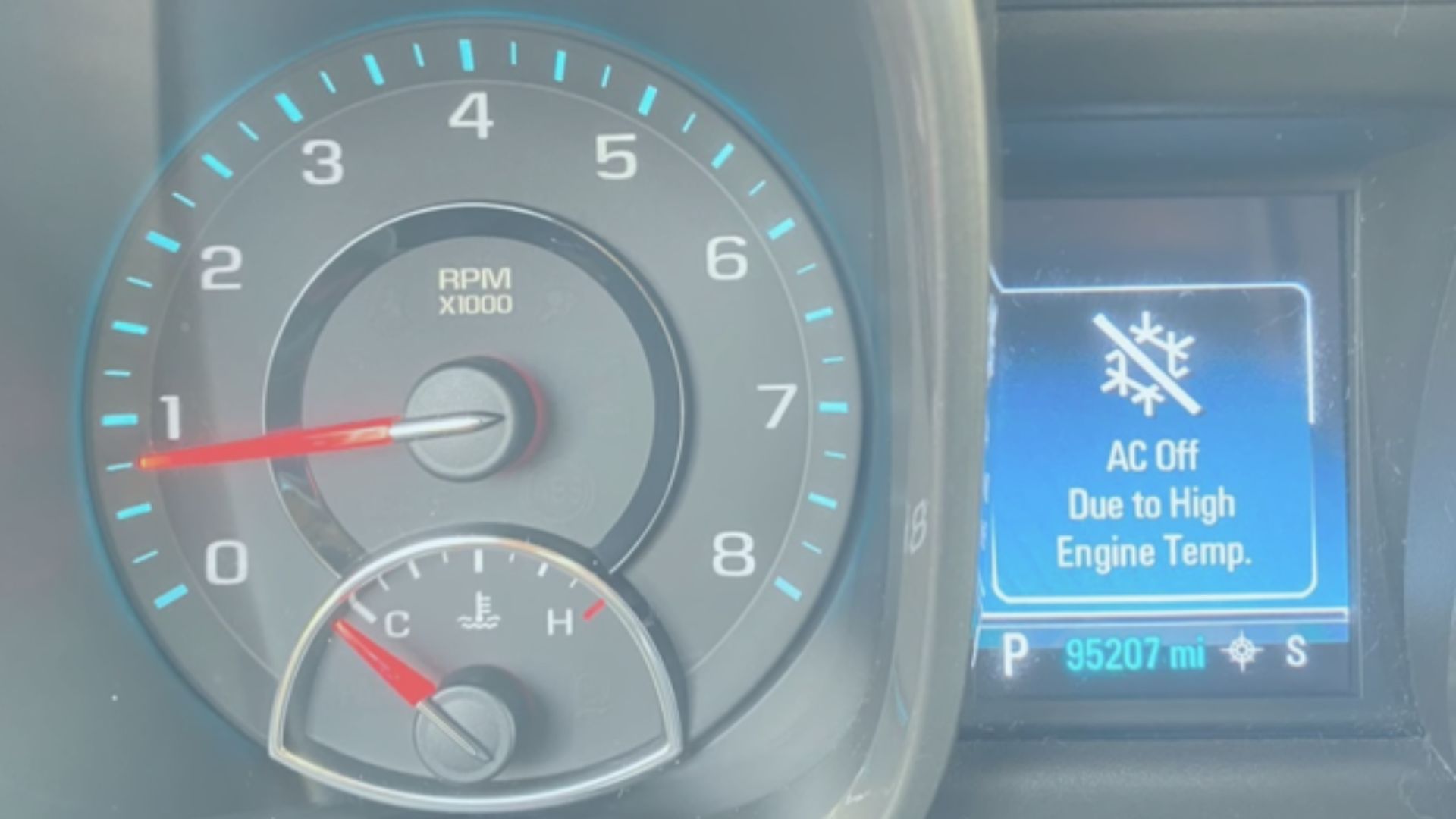You see this message when the engine overheats. Once the temperature crosses a specific threshold, the vehicle’s computer will detect this development before deactivating the AC to prevent the temperature from climbing even further.
It is easy to blame this problem on other factors, including a defective computer. However, overheating in automobiles is not that difficult to identify. Look for the following symptoms:
1). You find the engine below the hood. Therefore, the hood always becomes warm when the engine below starts running. This is perfectly normal. However, the hood shouldn’t be so hot that you can barely touch it. If you can’t keep your palm on the hood for several seconds without getting burnt, the engine is overheating.
2). You don’t have to touch the hood to check the engine’s temperature. Vehicles have gauges that track the temperature. In fact, a warning light on the dashboard will come on once the engine exceeds acceptable temperatures. Unfortunately, some people ignore this light, which is a mistake.
3). Overheating engines have a distinct smell. This is because they are surrounded by plastic and rubber components. Exposing these elements to high temperatures produces a noticeable scent.
4). Overheating engines are noisy. First, you may hear thumping as cold and boiling coolants mix. Secondly, the oil will lose its ability to provide lubrication, resulting in a ticking sound as the moving parts knock against each other.
5). Coolant will leak because high temperatures have boiled the liquid, causing it to overflow the tank. Admittedly, coolant can leak for other reasons. But in this case, the excess heat will push the coolant past the boiling point to produce steam.
If you’ve seen cars with steam escaping from the hood, that is coolant. You couldn’t ask for a more tangible sign of overheating.
Overheating will prevent the engine from performing optimally. It will begin to lose strength. Don’t panic. Chapel Hill Tire wants you to start by pulling over. Driving a vehicle whose AC has stopped working because of overheating is a bad idea. Wait for a mechanic to arrive. Once they diagnose the car, the mechanic may identify one or more of the following as a potential culprit:
1). Engine Control Unit
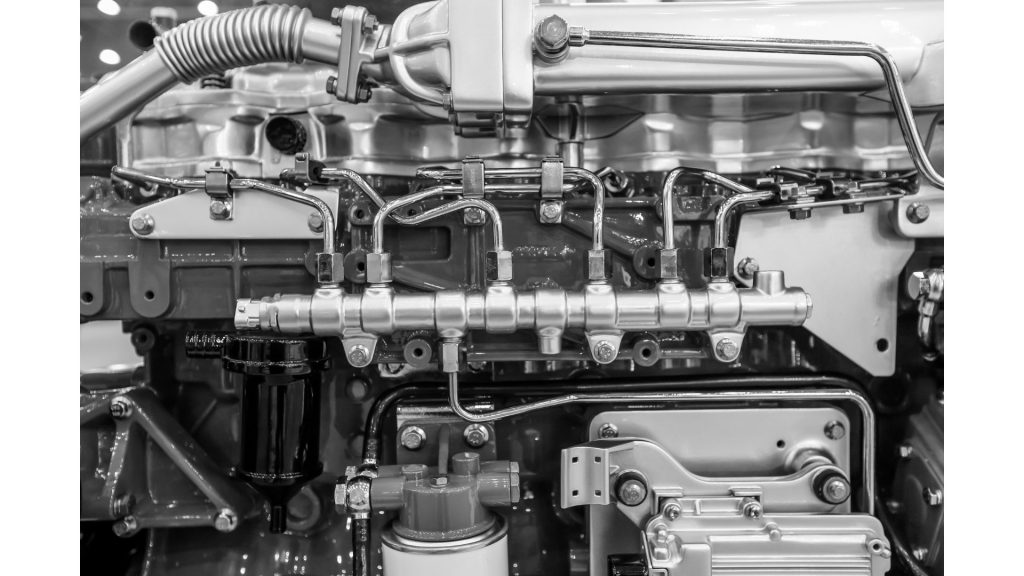
The engine control unit is responsible for shutting the air conditioning system down when it detects high temperatures. A malfunction can lead the ECU to erroneously detect overheating even though the engine’s temperature is within acceptable parameters.
2). Insufficient Coolant
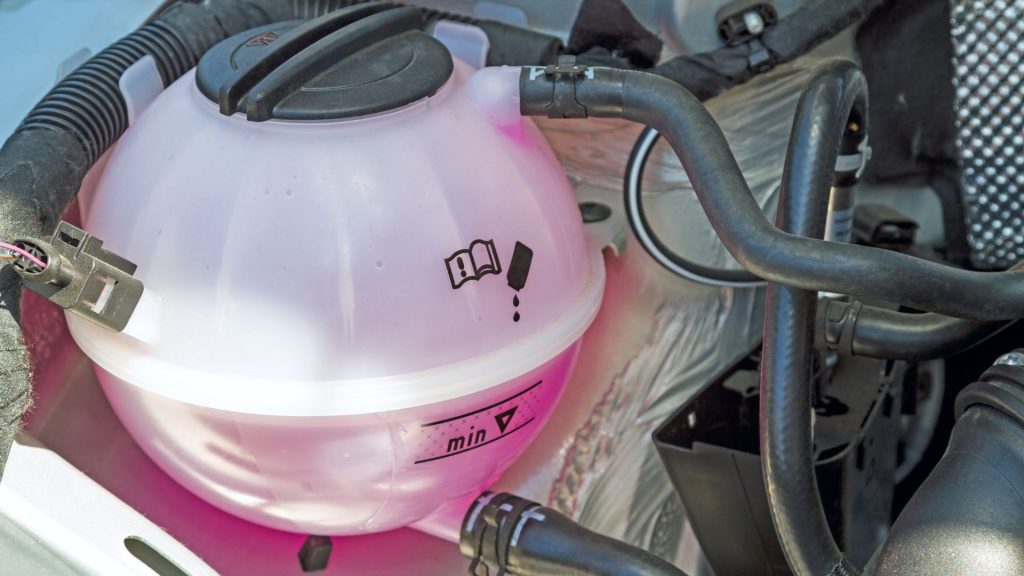
This should be your first consideration. The engine cannot prevent overheating without sufficient coolant. Therefore, allowing coolant levels to fall will cause temperatures in the engine to spike. Coolant levels can fall because of leaks and blockages. Although, more often than not, people simply forget to top up the coolant.
3). Defective AC Compressor

The AC compressor is vital to an air conditioning system’s operations because it turns refrigerant gas into liquid. The air conditioner cannot funnel cold air into the vehicle’s internal cabin when the AC compressor has stopped working. This can cause the AC to malfunction. As you can see, the AC can stop working for other reasons besides high temperatures in the engine.
4). Blocked Thermostat Valve
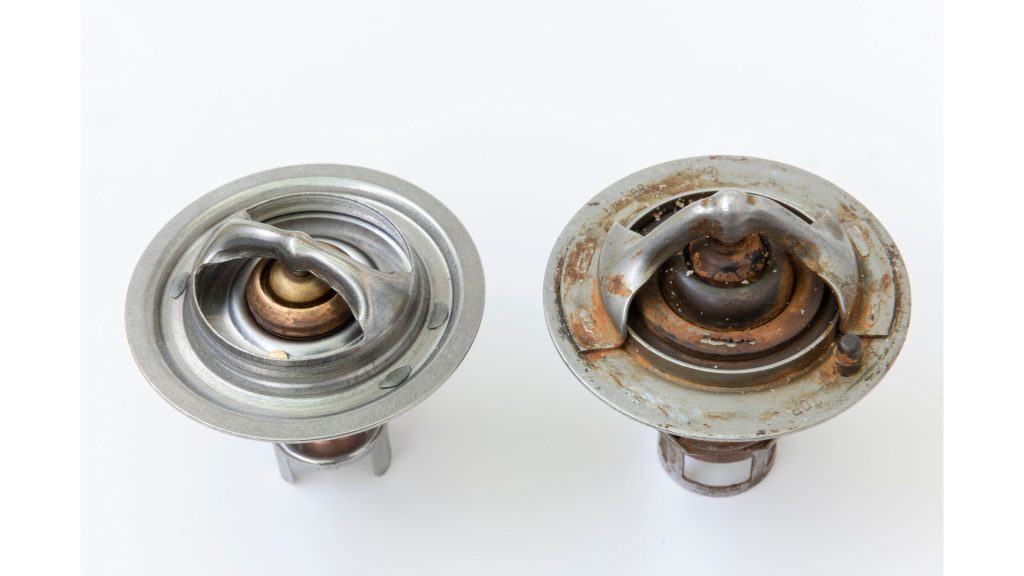
In an ideal situation, you expect the thermostat valve to manage the temperature by opening and allowing the coolant to flow to the engine. As such, when the thermostat develops blockages, the temperature will spike because the coolant can’t flow to the engine.
5). Damaged Head Gasket
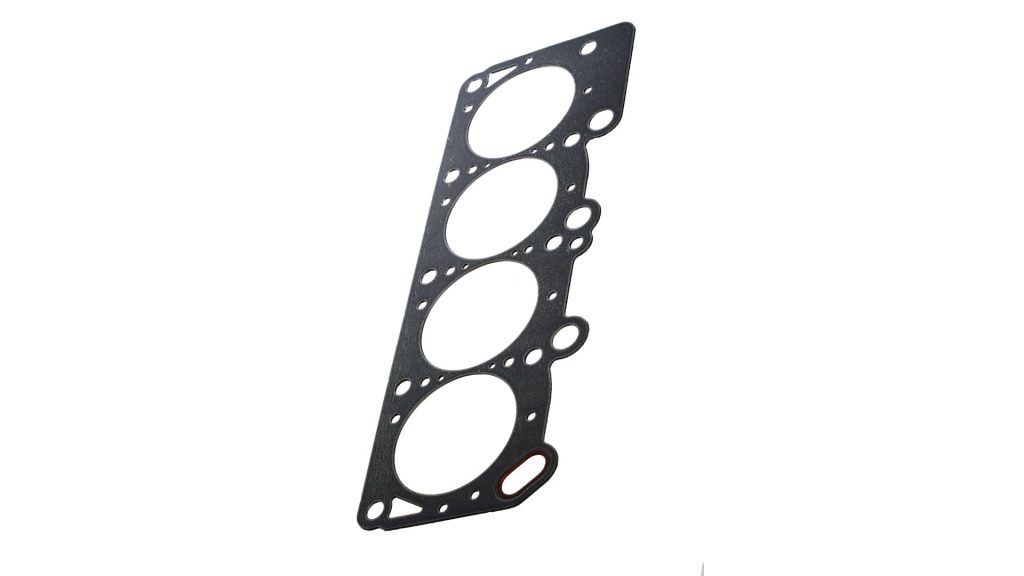
You may assume that a damaged head gasket has nothing to do with your AC until you realize that it allows the coolant to leak. Once that happens, the engine will overheat because it cannot prevent the heat from accumulating.
6). Loose Connections
The vehicle may erroneously assume the engine is overheating because of loose or corroded connections in the temperature-sensing circuits. Unfortunately, finding these loose and corroded connections is easier said than done because a vehicle’s electrical system is complex. You need an expert to inspect all the wires until they locate the culprit.
This assumes that the temperature sensor is okay. Temperature sensors can fail. Once that happens, this component will send the wrong readings to the computer.
How To Fix AC Off Due To High Engine Temperature?
It should be reiterated that you shouldn’t drive a car whose AC is off because of high temperatures. Pull over and diagnose the problem if you have the skill and experience. You can apply the following solutions:
1). Crank Up The Heat
Firestone Complete Auto Care has an unusual suggestion. Naturally, you shouldn’t turn the AC back on. The vehicle turned it off for a reason. Instead, you should crank up the heat. Use the maximum setting. This sounds counterintuitive, but it helps because it pulls heat away from the engine.
By increasing the heat, you can keep the engine’s temperature down long enough to drive to a repair shop.
2). Add Coolant
Open the hood and remove the radiator cap. Apply caution. You don’t want the boiling coolant to spray your face. Geico suggests covering the radiator cap with a towel, pushing it down, and slowly making a quarter turn.
The goal is to release the pressure. Once you remove the cap, add coolant until it reaches the recommended level. If you consult a mechanic over the phone, he may encourage you to add half water and half antifreeze.
3). Fix The Radiator
If the coolant is leaking because the radiator is damaged, fix the radiator. This means flushing it and looking for holes and cracks. Don’t ignore the hoses. Replace the radiator and hoses where necessary.
If you’re satisfied with the state of the radiator, refill it with coolant and ensure the temperature gauge remains within the appropriate range when you start the engine.
4). Replace Dirty Air Filter
Make the air filter the first component you check. Some people waste time taking the radiator apart when the fault lies with the air filter. Air filters become dirty over time. You should replace them routinely.
You can clean a clogged air cleaner during an emergency, but replacing the component when the opportunity arises makes more sense.
4). Repair/Replace Temperature Sensor
Inspect the temperature sensor and replace it if the component is defective and beyond repair.
5). Replace Head Gasket
Replace a blown head gasket. Fortunately, head gaskets are inexpensive. You can replace them whenever you perform maintenance, especially if coolant is leaking out of your car.
6). Remove Obstruction In Thermostat Valve
The coolant cannot flow to the engine if the thermostat valve is blocked or defective. You can remove the obstructions or replace the thermostat if the component is irreparable. You can’t keep temperatures down with a faulty thermostat.
7). Tighten The Radiator Cap
Make sure the radiator cap is tight. You should also clean it. Replace damaged radiator caps. Like everything else in the car, radiator caps can wear out.
Because overheating engines are dangerous, don’t be afraid to park the car on the side of the road. Wait for a mechanic to arrive. Otherwise, laypeople can expose themselves to harm by opening the hood of a car with an overheating engine.

